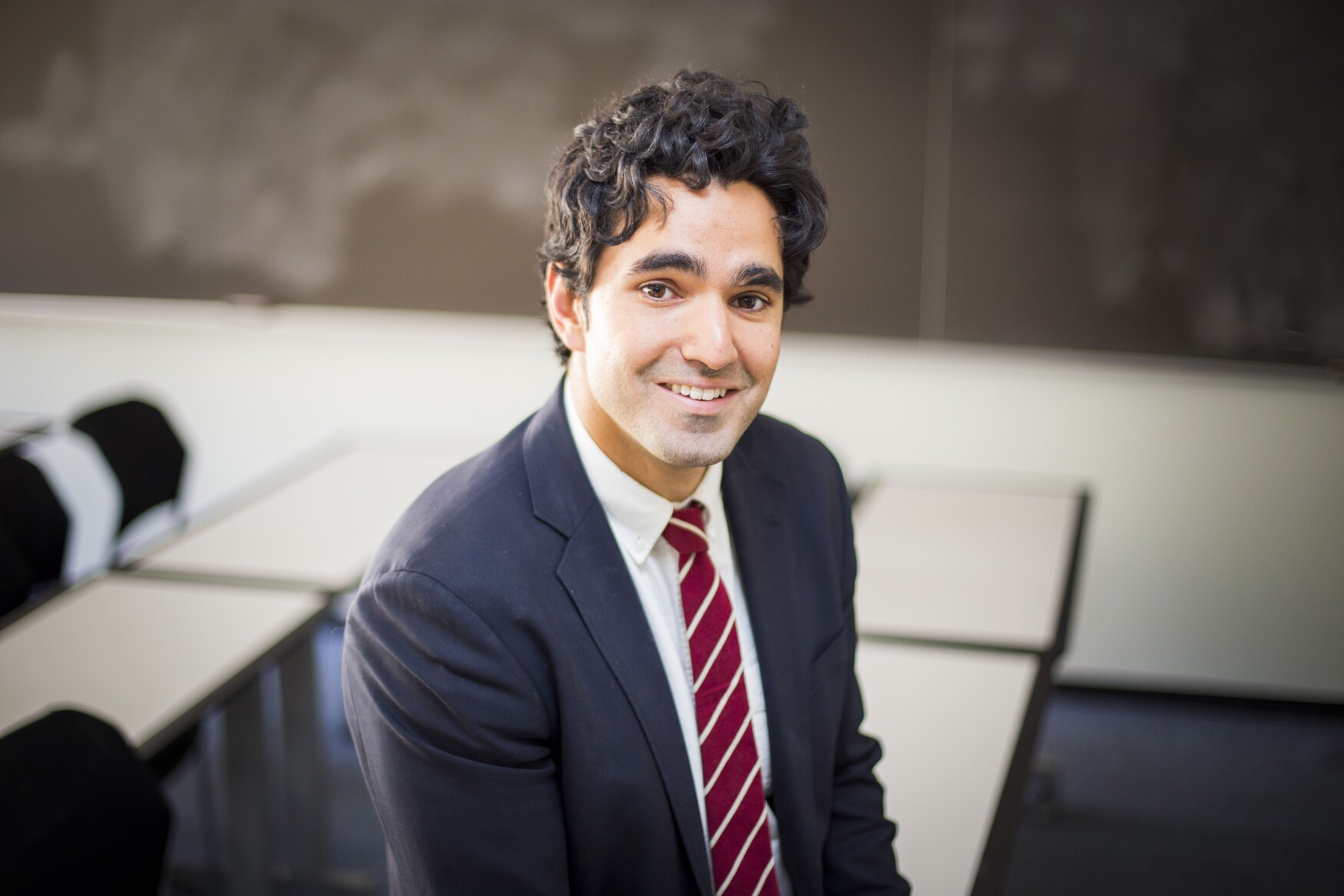Mobile Menu
- Education
- Research
-
Students
- High School Outreach
- Undergraduate & Beyond: Community of Support
- Current Students
- Faculty & Staff
- Alumni
- News & Events
- Giving
- About

Dr. Andrew Boozary isn’t afraid to tackle tough health challenges head on. The family medicine resident started the Harvard Public Health Review to engage experts in evidence-based debate about issues such as race relations and health. He also focuses on a wide array of health policies as a Special Advisor to the Ontario Minister of Health and Long-Term Care. He talked to us about his work.
Name: Dr. Andrew Samson Boozary
Program: Family Medicine
Role/position: Editor-in-Chief, Harvard Public Health Review and Special Advisor, Ministry of Health and Long-Term Care
Tell us about your work with the Public Health Review and Ministry of Health and Long-Term Care.
When we started the Harvard Public Health Review, the idea was to capture a lot of the debate, and look for different angles to perennial questions in the discipline. We’ve already covered topics ranging from ‘libertarian paternalism’ in public health to Dr. Oz and natural supplements. Our challenge is engaging the public health community on a different platform.
At the Ministry, it’s a real privilege to work under some incredible leadership and people who have dedicated their entire careers to health policy. We’ve been looking at ways to bring in portals for better-informed policies, such as “Evidence Rounds” so we can discuss empirical evidence and all the other considerations that go into designing good policy.
The two worlds are definitely quite different, but what’s consistent is the commitment to making things better than they are. I’m really grateful for that.
What do you find most exciting about your work?
I think it’s a mix—the opportunity to see impact and the editorial perspective for reflection. With the Harvard Public Health Review, it’s incredible to get keyed into issues that you may not have thought about much beforehand. Most importantly, we have the privilege to support social progress on crucial issues. For example, our recent and upcoming issues look at racism and public health, and at the dynamic of power, politics and privilege. Looking at good evidence to inform our advocacy is hugely important.
It’s been an incredible experience working under Minister Eric Hoskins — he’s an exceptional thinker and doer. Hearing his perspective on everything health policy and seeing his commitment to patients in action is a real privilege.
What do you hope to accomplish?
I think the dream is to play a part in policy that can improve peoples’ lives, or help support an article or issue that ends up impacting readers or decision-makers. But what tops it all, and what I can’t discount, is the sheer volume of learning on any given day.
How do you think your work will impact your career as a physician?
As much as digging into a wide range of policies can be rewarding, I really do miss the one-on-one interaction with patients. There’s a trust and a privilege in being a patient’s advocate that is, quite frankly, sacred. Being away from practice for a while has reinforced that. But my new roles also help me realize that I made the right decision in perusing family medicine, which combines social justice, evidence, and above all, the patient’s story.
What's your favourite thing about the Faculty of Medicine?
People always told me that Toronto’s a big place with a big program. But honestly, I think it’s a world-class spot for mentorship. There’s a rigour for evidence that pushes you to do better. The faculty is also committed to helping you find your path, and I’m forever indebted to my mentors here. You can really beat yourself up in medicine, and having faculty members who push and believe in you can make all the difference.
Faces of U of T Medicine introduces you to some of the interesting men and women studying in the Faculty of Medicine. From advising political leaders to providing care to Toronto’s most vulnerable populations, our students are making an impact on communities at home and around the world.
Do you have an interesting story to share? Contact Suniya Kukaswadia at Suniya.Kukaswadia@utoronto.ca.

